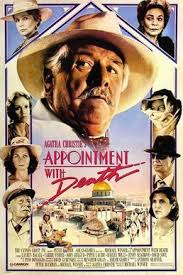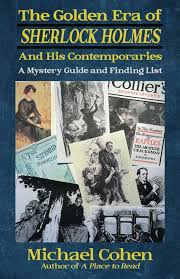Until recently I'd avoided Michael Winner's 1988 movie version of Agatha Christie's Appointment with Death for two reasons. First, I'm not keen on the book. I recall that when I first read it as a teenager I felt it might have been called Disappointment with Death. For me, the characters didn't really come to life and I didn't believe in the criminal motivation, which was not, I felt, adequately foreshadowed. Second, I've never been a big fan of Winner, and the memoirs of Anthony Shaffer, who co-wrote the screenplay, were very negative about the film.
However, I decided to give it a go on realising that Peter Buckman also had a hand in writing the screenplay. Peter and his wife were very kind to me a couple of years back when I narrowly missed my own appointment with death. While en route to have lunch with them in Oxfordshire, my car was involved in a hit and run with a motorbike, a pretty terrifying experience. These days Peter is primarily a literary agent, but he's also a good writer. And the screenplay does have some rather nice touches.
There is a starry cast. Peter Ustinov plays Poirot in a very Ustinov way, as usual, while John Gielgud is the official detective, Colonel Carbury. The appalling Mrs Boynton, now the matriarch of a dysfunctional American family, is played by Piper Laurie, while Lauren Bacall is cast as the almost equally unappealing Lady Westholme. Winner cast his partner Jenny Seagrove as the young Dr King and David Soul as the lawyer Jefferson Cope. The two Boynton sons are played, rather underwhelmingly, by less well-known actors, but it's still quite a roster.
The story is significantly changed from the book, but here that's arguably a positive, given the flaws in the original. However, it's a shame that filming was done in Israel rather than Petra, which made a notable backdrop for the novel. Overall, it's not a brilliant movie, but it's competent: by no means as bad as some critics have suggested, and far superior (for instance) to The Alphabet Murders.



.jpg)










